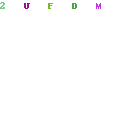So just looking for how far we were supposed to read for Thursday,
I realized I was supposed to post for today. End of semester head-case. Sigh… I’ll
get my life together soon enough! Just not before I do this blog.
Alright so I’m sure I’m not the only one who was glad to
read something about the slave trade that wasn’t straight out of a text book.
We certainly have plenty of literature about racism and repression of
minorities throughout cultures, but not nearly as many about slave trade
itself. Plus, this is truly a relief after Paradise
Lost. Behn’s sentences are often so beautifully written and sort of poetic
themselves.
When discussing Prince Oroonoko’s lady, the narrator says
she has seen “a hundred white men
sighing after her, and making a thousand vows at her feet, all in vain, and
unsuccessful.” This says a lot to me about the progression of race even during
slave trade. Although the white men enslaved the negroes, the white men were
still able to see beauty in whatever form it took. They were able to look past
a color and see a black woman as a human being, similarly to how the narrator
describes the prince. The narrator’s description of Prince Oroonoko is really
quite lovely not only because she addresses his physicality as basically flawless,
but additionally because she notes his intellect, social abilities, and charm.
She says that both his “soul and body [are] admirably adorned.” I know later it
might seem like she’s saying he would be the best… if only he weren’t black.
But consider that when she’s describing his beauty she mentions his ebony skin
and calls is beautiful and additionally mentions that “certainly” people of
color can possess an intense beauty. Without having finished the story, I think
it introduces a different viewpoint on race than we would expect from the time
period.
